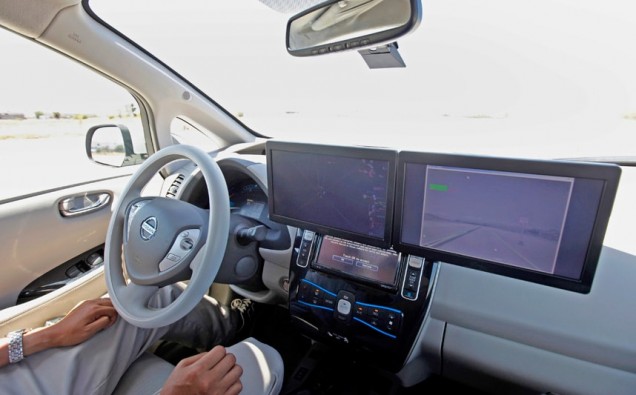The majority of the British public remain unconvinced over the current safety credentials of driverless cars.
Autonomous technology has taken significant steps over the past few years, with various global trials underway, but a large proportion of adults in the UK still harbour reservations.
Nissan conducted a survey of 1,000 adults across the country. A total of 55% admitted they would feel still “uncomfortable” travelling in a driverless vehicle.
While 53% said their main concern would be the feeling of not having full control of the vehicle – and as such, their own safety – almost half of the respondents (49%) would be fearful of a malfunction.
Earlier this year Transport Secretary Patrick McLoughlin said he believes the Governments proposed transport bill will soon make autonomous driving a realistic prospect for motorists.
And despite the apprehension, this survey did uncover the fact that in general, members of the public do think the new technology makes for a positive progression.
Over 60% say increased mobility is the chief advantage of autonomous technology – with 56% believing it will be of most benefit to people with physical disabilities.
Older people too, are expected to be among the biggest benefactors of the advances, with 30% of adults thinking this group will enjoy the biggest changes to their day-to-day lives.
Managing director of Nissan GB, Alex Smith, reminded the public that driverless technology on a mass-market scale is still “very much in its infancy”, with very few everyday drivers having yet had the opportunity to sample the potential.
“We’d expect some hesitancies about such a revolutionary change to how we drive our cars,” he admitted in relation to the latest survey responses.
“However, these results are pleasantly optimistic, particularly with regards to identifying the benefits to users who will rely on the technology more, such as the elderly.”
Of the major benefits expected through wide-scale roll-out of driverless cars, a huge reduction in accidents is central.
It has been reported that in 2016 as many as 31 million people globally were injured in car accidents, while over 1 million people lost their lives.
Among the other widely hoped-for improvements to daily life, car-sharing would be expected to be made so much easier that we could make do with up to 80% fewer cars on the roads.
This would lead to less pollution and congestion, a reduced need for car parks and ultimately, fewer hours wasted on the roads.





















